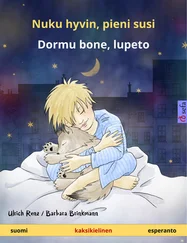It wasn’t as if I had it easy, either. For a start, I had people chanting ‘Le Saux takes it up the arse’ wherever I played. What an incentive that was never to make a mistake. Even in the winter of my career, playing for Southampton in a reserve game against West Ham at Upton Park, this young kid in the West Ham side started yelling abuse at me, spitting ‘faggot’ and ‘queer’ at me. I told him that when he’d achieved what I’d achieved in the game, he could come back and talk to me. At half-time, I heard him getting a bollocking from West Ham’s reserve team boss.
I enjoyed highs and I saw lows. I heard the snap of Robbie di Matteo’s leg breaking in Chelsea’s UEFA Cup match against St Gallen. When Pierluigi Casiraghi’s career came to a terrible end at West Ham, I ran off the pitch and grabbed the stretcher from the St John’s Ambulance men who were standing in the tunnel while he was in agony on the floor with terrible injuries to his leg. I saw the grief and the pain that football can bring as well as the riches and the glamour. I saw the last snapshot of Chelsea before the revolution: its extravagance cheek by jowl with its miserliness, and the fantastic idiosyncrasies of the Ken Bates era. I was man of the match in the game that took Chelsea into the Champions League and made it viable for Abramovich to buy them.
I went to Buckingham Palace to meet the Queen. That was in the summer of 1998 after the World Cup in France when we had been knocked out in the second round. The squads from the Commonwealth countries involved in the tournament – England, Scotland and Jamaica – were invited to the palace and being driven into the courtyard behind the railings felt to me as if the gates of Willy Wonka’s Chocolate Factory were swinging open and I was being ushered into a secret world that I had long imagined but never glimpsed.
Once we were inside, we were led up to one of the reception rooms and we all stood around in small groups, chattering away nervously until Her Majesty arrived. Soon enough, a door opened and the Queen walked in and made straight for the group that I was part of. She came up to me and asked the first of what I am sure are her standard questions. She asked me who I played for and when I said Chelsea, she seemed quite pleased. ‘Oh,’ she said, ‘local.’
On the other side of the room, Sol Campbell was being introduced to Prince Phillip.
‘What part of Jamaica are you from?’ the Duke of Edinburgh enquired.
‘Walthamstow,’ Sol said.
At the other end of the scale, I remember the simple, visceral thrill of wrapping the white tape around my socks when I was preparing for games, just like one of my heroes, John Robertson, had once done. I loved Robertson as a player. He was left-footed like me and he was part of Brian Clough’s great Nottingham Forest side that carried all before it when I was growing up.
I chipped Peter Schmeichel once, too. I played my first stand-out game for Chelsea against Spurs in 1991 and rushed home to catch the highlights on the television but the Gulf War had broken out and the programme had been cancelled. I scored my only England goal against Brazil; it wasn’t a bad one, either. I played against some great opponents; if I had to pick my most difficult one, I’d say Brian Laudrup.
I did have my own share of injuries. I missed Euro 96 and Euro 2000 but at least I made it to the World Cup in France in 1998. Apart from the moment when I broke my ankle in 1995, that World Cup gave me my worst moment in football – when I was blamed for the late Dan Petrescu goal that gave Romania a 2–1 win over England in our second group game. Generally, though, I felt I over-achieved in football. I gave it everything and it gave back to me a lot more than I ever dared hope for.
In the end, I even learned the gift of being able to laugh at myself. I wish I’d been able to do that earlier. I wish I’d been able to ignore it back in 1991 when people started sniggering about how they thought I must be gay. In my second spell at Chelsea, I was at the core of the dressing room. I was secure in myself. People even laughed at my jokes and I laughed at theirs.
I used to take the mickey out of Gianfranco Zola, who was a particular friend of mine during my second spell at Chelsea. I used to tease him about his image of being the White Knight of Stamford Bridge, adored by all for his ready smile and his sublime skill. People had such a fantastic image of Franco, they could not imagine him being anything other than honest and truthful and the epitome of good sportsmanship, but I knew different.
One day in training, we were all square in a five-a-side game and Franco and I were running for a ball that was heading out of play. It went out so I turned around to shout something to one of my team-mates. When I looked back around, Franco had retrieved the ball and was in the act of curling a beautiful shot around our goalkeeper for the winner. He was adamant that the ball hadn’t gone out and when I disputed it, the other guys looked at me as if I was disputing the word of a saint.
‘Franco,’ I said, ‘you’re a cheating, low-down Sardinian git. When I write my book, I’m going to tell the truth about you and let everyone know what a sneaky, low-down, horrible little man you are.’
‘That’s fine,’ Franco said. ‘And when I write my book, I’m going to say that you look at me in the showers.’
A sad and ugly irony lay at the heart of my career as a professional footballer. I represented my country thirty-six times, won a Premiership title with Blackburn Rovers and the Cup Winners’ Cup and Super Cup with Chelsea, played in an FA Cup Final and won the League Cup, and all of it was accompanied by the soundtrack of a lie. Even though I have never been gay, for a fourteen-year stretch of my eighteen seasons in the game, I became the leading victim of English football’s last taboo.
It started in the summer of 1991 soon after we reported back for pre-season training. I was in my first spell at Chelsea. We had what is known as ‘a strong dressing room’ – which is usually a euphemism for a group of players who were very good at dishing out a lot of stick. It was not a place for shrinking violets. The banter was flying around more than ever in those first few days back at our Harlington training ground. There was a lot of talk about where people had been for their holidays.
I’d had a good summer. I was twenty-two and had just broken into the first team. Over the previous eighteen months, I’d got matey with two of the forerunners of Chelsea’s foreign legion: Ken Monkou and Erland Johnsen. Ken, who was originally from Surinam, had signed from Feyenoord in the spring of 1989 and we made our first-team debuts within a fortnight of each other that May. Erland, who was Norwegian, arrived from Bayern Munich the following December. During that season and the next one, the three of us became good pals.
Erland invited Ken and me to go and visit him in Norway once the 1990/91 campaign was over. He wanted us to go and put on a few coaching sessions for some kids in a town on the border with Russia. So when the season finished, I took Ken down to Jersey, where I’d grown up. We spent a couple of days there and then we drove up through France, Belgium and Holland. Then we flew up to Norway. We had a good time. When the trip was over, Ken headed back to London, Erland went on his honeymoon around the Caribbean and I went off on holiday with my girlfriend.
When I got back to Chelsea and the boys asked me where I’d been, I told them. Somebody – I can’t remember who – said ‘Oh, so you went camping with Ken’. There was a bit of chortling and sniggering. It got to me straight away. I was sensitive about it immediately. I bit on it. I told them we hadn’t gone camping. I told them we’d been staying in hotels. But it stuck. It became a bit of a running gag. And soon, to my horror, it was out there on the grapevine that Ken and I were an item.
Читать дальше












